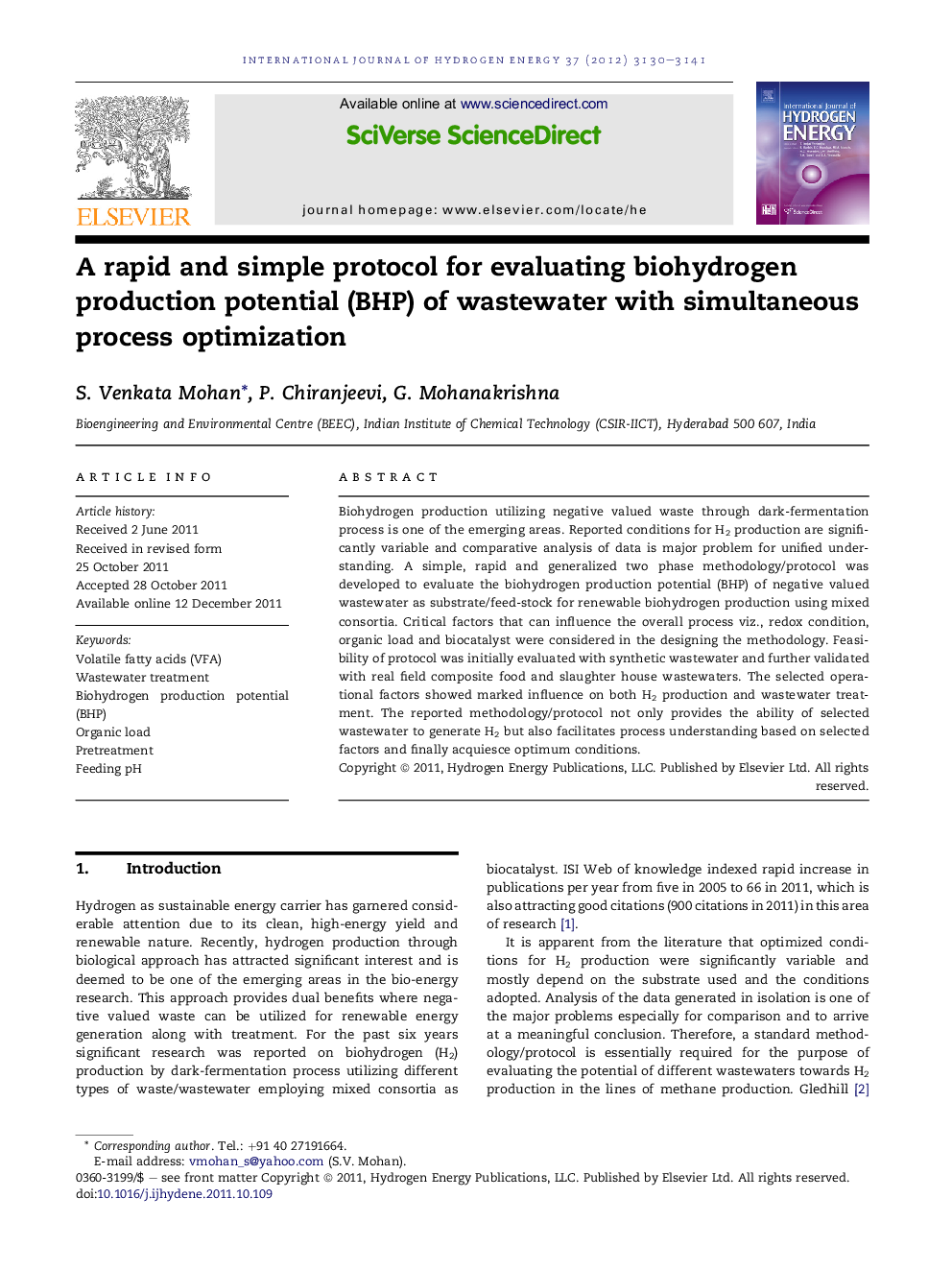| کد مقاله | کد نشریه | سال انتشار | مقاله انگلیسی | نسخه تمام متن |
|---|---|---|---|---|
| 1282317 | 1497565 | 2012 | 12 صفحه PDF | دانلود رایگان |

Biohydrogen production utilizing negative valued waste through dark-fermentation process is one of the emerging areas. Reported conditions for H2 production are significantly variable and comparative analysis of data is major problem for unified understanding. A simple, rapid and generalized two phase methodology/protocol was developed to evaluate the biohydrogen production potential (BHP) of negative valued wastewater as substrate/feed-stock for renewable biohydrogen production using mixed consortia. Critical factors that can influence the overall process viz., redox condition, organic load and biocatalyst were considered in the designing the methodology. Feasibility of protocol was initially evaluated with synthetic wastewater and further validated with real field composite food and slaughter house wastewaters. The selected operational factors showed marked influence on both H2 production and wastewater treatment. The reported methodology/protocol not only provides the ability of selected wastewater to generate H2 but also facilitates process understanding based on selected factors and finally acquiesce optimum conditions.
► Rapid protocol for evaluation of biohydrogen production potential (BHP) of wastewater was developed.
► Critical factors like pH, organic load and inoculum were considered in design.
► Two phase protocol was validated by using synthetic and real field wastewaters.
► Pretreated inoculum and pH 6 was evidenced as best condition for good H2 production.
► Developed methodology facilitates simultaneous process optimization.
Journal: International Journal of Hydrogen Energy - Volume 37, Issue 4, February 2012, Pages 3130–3141